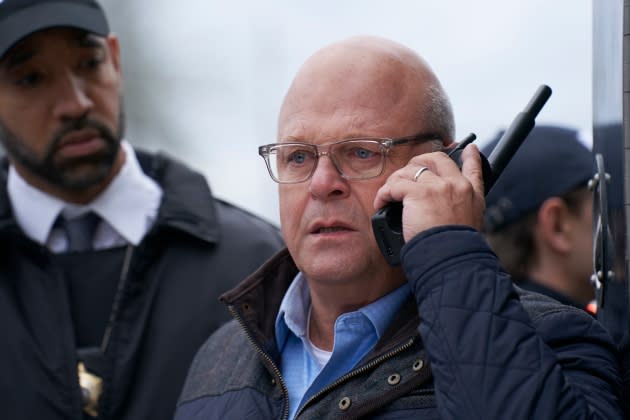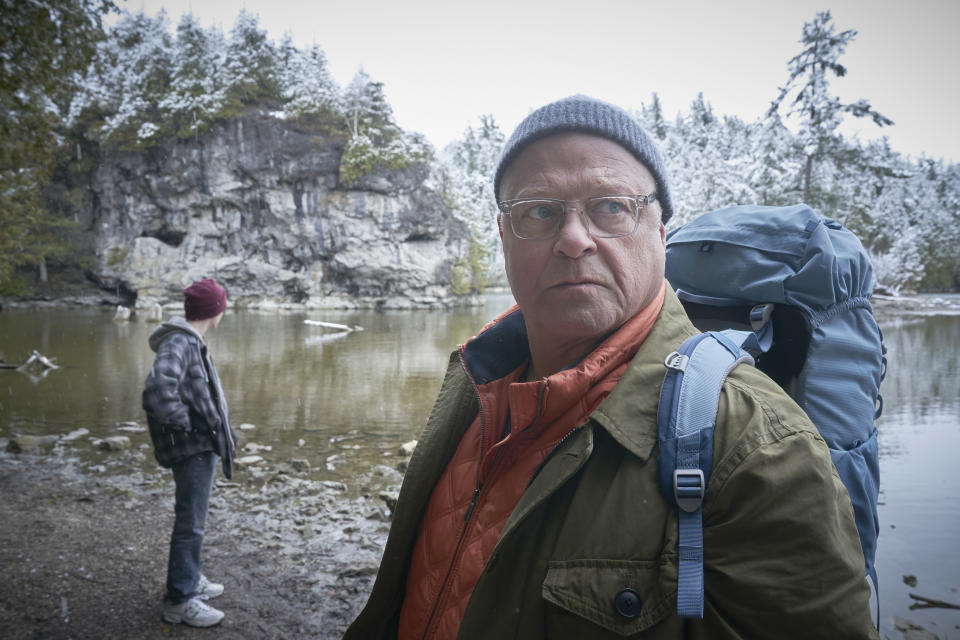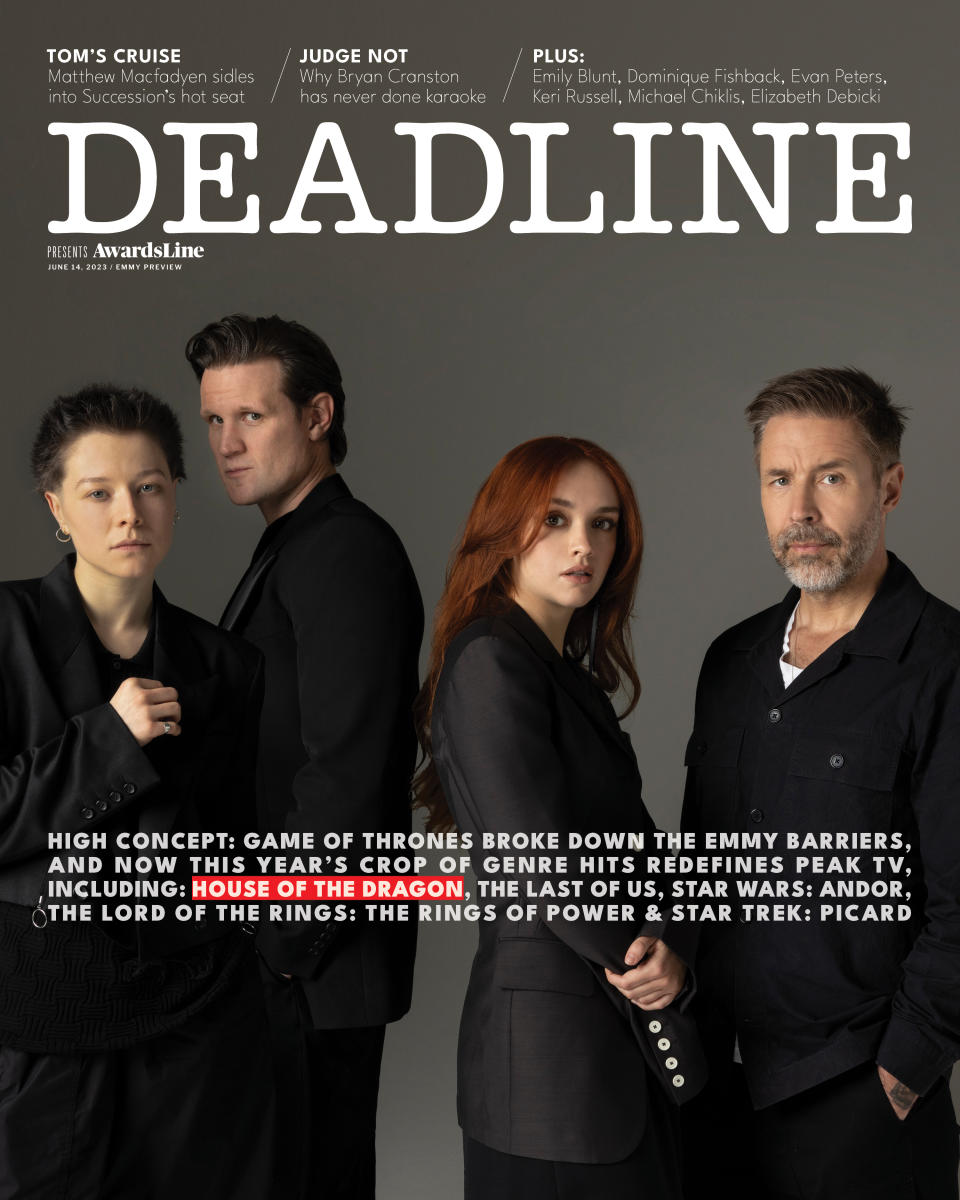‘Accused’ Star Michael Chiklis On Addressing Hot-Button Topics As A Director: “I’m Finally At A Point Where I Have Some Things To Say”
- Oops!Something went wrong.Please try again later.
- Oops!Something went wrong.Please try again later.

Michael Chiklis was so ignited by his role as a frightened dad who must confront the realities of his troubled son’s behavior in Fox’s anthology series Accused, he decided to come back for more. After starring in what would become the pilot episode, “Scott’s Story”, he told creator Howard Gordon that he’d like to step into the director’s chair. Gordon handed him “Jack’s Story”, another gripping tale that wrestles with the realities of a post-Roe v. Wade world. Chiklis discusses infusing his work with nuance in order to handle two of the most sensitive and current topics in the U.S. for broadcast television.
DEADLINE: Both of your episodes, “Scott’s Story” and “Jack’s Story”, tackle some of the most hotly contested issues in the nation right now. How did it feel working on those stories?
More from Deadline
MICHAEL CHIKLIS: Interestingly, it’s both the reason I was attracted to doing it and the reason I was trepidatious to do it. Whenever you’re going to handle this kind of subject matter, it’s incredibly sensitive, and you want to make sure that it’s handled in a particular way that shows tremendous humanity and empathy, and respect. It starts on the page, and Howard Gordon happens to be an excellent writer and his writing staff are fantastic. So when I read the pilot, I honestly was blown away. This is a subject that none of us can avoid in this country. It’s just madness at this point. What I liked [about “Scott’s Story”] is that it puts you as a viewer in this person’s place. At least, it did for me. Imagine if you knew in your gut that your child was mentally ill, and then you found their manifesto. What would you do? How could you respond to that? Especially if you did everything within legal boundaries? I love it when storytelling entertains you, but it also makes you think and feel. I think that’s the trifecta for me. I just don’t like it when people sort of benignly watch something. It’s so much more important to me that they’re moved.
I was very passionate about both of these pieces. The crew was world-class, to the point where I turned to Howard at one point on set, and I said, “I’d really like to direct one of these.” And the very next day, he sent me the script [for “Jack’s Story”], and it was the first draft of it. Now, that one really spun me out. I was both nervous and very excited to take it on. Howard wasn’t interested in taking a position politically. He just wanted to stay in an ambiguous place but ask questions like, what happens when the government becomes involved in your personal matters? I just was thrilled by the performances that I got out of my cast. Directing is something that I’m going to be doing a lot more of in the fourth quarter of my life. I want to bring 35 years of experience in film and television, and an additional 10 years before that of theater, to bear as a director. I feel like I’m finally at a point where I have some things to say.

DEADLINE: Knowing that Howard didn’t want to take a position, how did you, as the director, help strike a balance in the performances? Especially when “Jack’s Story” is addressing such a profoundly sensitive subject.
CHIKLIS: You have to be incredibly communicative. I was particularly interested in what the women in the cast had to say and really took a cue from them. You have to listen a lot [as a director]. I think being an actor, we’re naturally empathetic. So, you try to walk a mile in another person’s shoes every time you take on a role. So in this way, as a director, I look at both sides of any question and try to put myself in a person’s shoes, whether or not I personally believe what they might espouse, and I try to see their point of view, and then help the actors try as evenly handed as possible to pick those viewpoints in a way that adds such a level of complexity to the story. These are incredibly nuanced, complex questions that Accused was taking on. I think one of the real tragedies of what’s happening in our country right now is the death of nuance. Or, certainly, it’s on life support. Everything’s either this or that, black or white. That’s not the way things are. Things get very, very complicated in life and not so easily explained away or not so easily dismissed. We tend to make snap judgments. We see a headline and make a judgment about a person without really delving into what’s happened. What I loved about both of these [episodes], is that there’s very little action, but there’s so much tension throughout. It’s just so palpable. It was just a joy actually to do something really smart and thoughtful, and nuanced.
DEADLINE: With “Scott’s Story” there’s so much emotional turmoil from the beginning. It’s so difficult to imagine being in that position, like you said. As a parent, how did that inform your approach to this script?
CHIKLIS: It’s an impossible set of ideas. I have to say, I even chided myself at one point, because you tend to think to yourself, ‘It’s got to be the parents. There’s got to be a problem with the parents. They have to have been responsible for it in some way.’ But, like in every family, there’s people who are struggling for a number of reasons. We tend to look away from those people so often, mainly out of self-preservation. You can’t take on everybody else’s grief and problems.But I just found it really horrific trying to put myself in the position of a father who actually had to contemplate taking his own kid’s life to save other people’s lives, because I read his manifesto and knew he was going to flip out. That was just a brutal place to go as an actor, as a father, as a human.
DEADLINE: “Jack’s Story” feels a little more black-and-white to me, at least in his initial decision to help Clara.
CHIKLIS: It was pivotal that he finds her in the act of committing suicide, as that’s the thing that absolutely prevents him from doing anything other than helping her because he’s so terrified that she might harm herself again. Otherwise, the conceit doesn’t work. I just thought it was another fascinating question. That’s what I actually really appreciated about “Jack’s Story”. I really was very keen on making sure that the chemistry between Wrenn [Schmidt] and Jason [Ritter] was there… a couple that is otherwise beautifully happy. This thing happens, and they come from different philosophical backgrounds, and these things that normally wouldn’t come into play in their life and their situation, all of a sudden, caused this incredible turmoil.

DEADLINE: In watching the show, there were many times when I didn’t know what I would do in a certain situation. I can’t imagine how that felt as an actor.
CHIKLIS: I would love it if, in public schools all over America, philosophy and ethics were introduced in seventh grade… it’s the thing that breaks down barriers between people, because I think there’s just a tremendous amount of fear of each other in the country and in the world. It’s my experience traveling around this planet that people are essentially the same. They have families. They want the same things. They want a roof over their head, food on their table and education for their kid. They want to feel safe and protected and heard and validated. The only way you do that is by communicating with each other and walking a mile in each other’s shoes. And I love storytelling that advocates for that.
DEADLINE: I think we all want to think that we have all these very deep-seated beliefs until we’re presented with these types of conundrums that make a decision feel impossible.
CHIKLIS: At the very least, you might not agree with the person you’re in a philosophical debate with, but you’ll get to hear their point of view in an intellectual and emotional setting, in a classroom where it’s a safe place to talk… I think that’s the very core [of this show]. When Howard sent me the script, I was floored, because first of all, it was incredibly bold. It’s tragic, especially for network television. It’s not streaming. It just goes to show you that you don’t have to have language or nudity for something that’d be powerful. It’s just a nice reminder that you can do things on broadcast and be powerful. That was my reason for coming into it. It’s the material and who’s doing it, and then from there, it just builds on itself.
Best of Deadline
2023 Premiere Dates For New & Returning Series On Broadcast, Cable & Streaming
2023-24 Awards Season Calendar - Dates For Oscars, Emmys, Major Film Festivals, Guilds & More
Sign up for Deadline's Newsletter. For the latest news, follow us on Facebook, Twitter, and Instagram.

